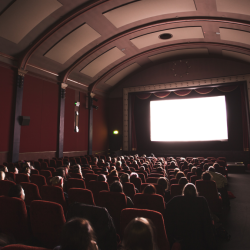Some recent studies claim that “Gen Z’s” average attention span when watching content or advertising is only 8 seconds. This is the shortest attention span of any customer generation. To put this in perspective, the world record of Usain Bolt for the 100-meter dash is 9.56 seconds. On average, Gen Z would have watched barely 80 meters of this race…sorry Usain…
Let’s be clear, we are now in the ‘Customer Attention’ economy, marked by a new, highly valuable currency: Customer Engagement. In addition to the attention span issue, this new era has four main challenges to overcome:
- We live in a platform-led economy with Google, Facebook and Amazon controlling over 60% of digital spending.
- Competition for “brain attention” is higher than ever – we’ve all heard statistics indicating that every person receives over 5,000 ads per day and all marketers are struggling with their engagement indicators.
- The pace of digital acceleration is unprecedented pace, driven by Covid-19. US e-commerce penetration growth was as strong between April and June 2020 as it has been in the past 10 years.
- We face an acceleration of generational nuances driven by behavioral characteristics. This is even more important when we talk about Generation Z (those born between 1996 and 2010). Why is this the case?
Why GenZ matters
Why does Gen Z matter to brands? They are now the biggest group of people in the world (over 2 billion). More importantly, recent studies have shown that they influence between 80-90% of purchases in their household. Only in the US, they represent a spending power over $140 billion. If you combine these customer figures with the role of this generation as voters (already 10 to 15% in most Western countries) and as a workforce (i.e. they will be 30% of the workforce by 2030 with up to 18 jobs during their lifetimes); this generation is already a powerhouse for our society.
Understanding how to capture their attention and connect with them is no longer an option or a trend to follow. It is a survival skill that every CEO, founder, marketer, and worldwide business leader needs to acquire, fast.
To understand and engage with Gen Z, we need to embrace one concept: This generation is at the end of what it named in psychology ‘the impressionable years’. These are the years that shape behavioural characteristics for each generation and, frankly, Gen Z has been through a lot.
If they are the first digitally native generation (on its own merit a big deal), a few dramatic events shaped their worldview. This begins with the 2008 recession along with its slow recovery as well as the inequalities that accelerated as a result. Then there is the heightened awareness of the climate change crisis. Gen Z has a deep sense of urgency, responsibility but also frustration towards older generations who they perceive as neglecting this issue.
Finally, the Covid-19 pandemic is having a direct impact on them. Millions need to live with their parents again from March 2020 as we enter the second recession in less than 12 years. These unprecedented moments and trends shaped Gen Z’s impressionable years in an irreversible way, creating its founding behavioural characteristics.
Defining GenZ’s behavioural patterns
How is Gen Z’ers’ consumer behavior shaped? First, Gen Z’ers are defiant toward institutions. In 2019, a Pew Research study indicated that only 17% of Americans believed they could trust the government to “do what is right.” Consider that in 1964 this figure was 77%. Despite their declining trust in institutions, they still have a desire to belong to communities aligned with their purpose and values. This goes even further. Gen Z is the generation of “We”, with a strong need for ‘alternative’ communities.
They are also ‘communaholic’, using social media and global reach to connect with other like-minded, purpose- driven individuals. From 2011’s Arab Spring Revolution through Climate Crisis protests to the recent Black Lives Matter movement, you can find a lot of commonalities – a younger generation speaking up to defend their views, leveraging social media (from Facebook to TikTok) to becoming a global movement. At the same time, they don’t want to be defined by a single stereotype.
Don’t put them in a box. They are the generation of the ‘And…’. They want to protest and party, they are as much activists as they are eager to excel in their respective careers. Lastly and as importantly, their impressionable years’ did not allow them to be single-mindedly idealistic. They have purpose and values and are deeply pragmatic. This pragmatism creates higher expectations for authenticity in brands. From artists to politicians to brands, everyone will have to earn their trust…again and again.
Featured image: insta_photos / Shutterstock.com































